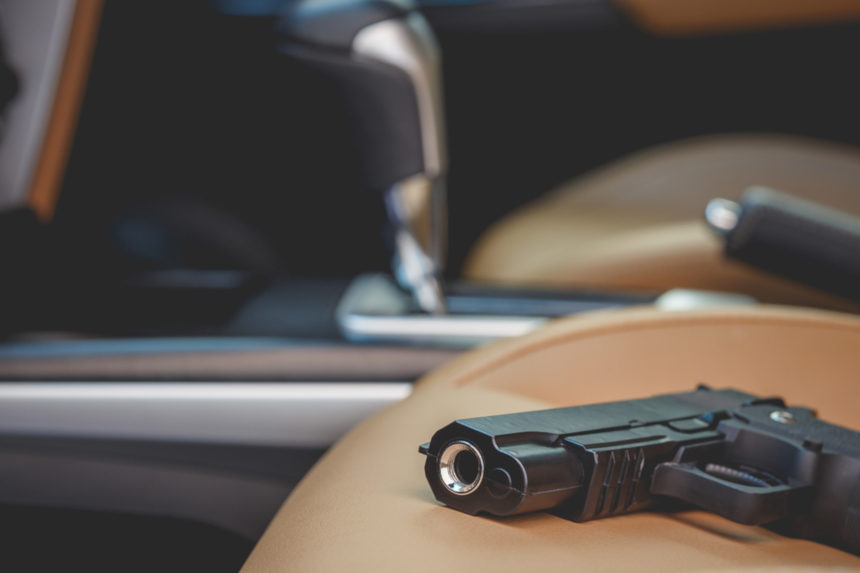On July 22, 2016, a 15-year-old boy from Huntingburg, Indiana, was walking around a busy part of town when he spotted a Glock 9 mm handgun on the seat of a parked truck. Seeing no one around the truck, the boy opened the unlocked door and stole the firearm. Later that day, the boy showed the Glock to his best friend, Matthew Kendall, and in the process the loaded weapon discharged, shooting and killing Kendall.
Kendall’s mother, Shelley Nicholson, filed a wrongful death lawsuit against the owner of the truck, Christopher Lee. She alleged that Lee’s storage of his handgun in open view inside an unlocked and unattended vehicle was negligent and that his actions led to her son’s death. Nicholson based her claim on an Indiana Supreme Court case that ruled gun owners have a “duty to exercise reasonable and ordinary care in the storage and safekeeping of their handgun.” In this case, the court advised that safe gun storage can be accomplished by numerous non-burdensome means, the least of which being “simply locking the front door, thereby preventing the public’s access.”
In his response, Lee admitted to owning and leaving the handgun in plain view inside an unlocked vehicle parked in a busy part of town, but claimed he was immune from liability, citing Indiana Code section 34-30-20-1 that states: “A person is immune from civil liability based on an act or omission related to the use of a firearm or ammunition for a firearm by another person if the other person directly or indirectly obtained the firearm or ammunition for a firearm through the commission of the following: burglary, robbery, theft, receiving stolen property, or criminal conversion.”
Lee asked the trial court to dismiss the case explaining he could not be held responsible for any harm — including Kendall’s death — because the gun had been stolen. The trial court agreed and the case was dismissed.
Nicholson appealed to the Indiana Court of Appeals. She claimed that the immunity statute should only provide immunity from liability for the accidental shooting by the boy who stole the gun. She argued that the statute should not be interpreted to extend immunity for the negligence that occurred before the theft. Nicholson asked the court to hold Lee responsible for his negligent disregard of his duty to store his gun safely.
The Decision:
The Indiana Court of Appeals upheld the trial court’s dismissal, denying Nicholson’s argument of negligence against the gun owner. The court ruled that the Indiana statute is unambiguous and was enacted to shield gun owners from liability even when “the gun that was unsafely stored is procured by a crime and then later used to commit another crime.” In other words, the statute immunized Lee from liability both for the deadly outcome and for his own failure to properly store the gun.
— Shelley Nicholson, as the Mother of Matthew Kendall v. Christopher S. Lee, 2019
Featured image: Shutterstock
Become a Saturday Evening Post member and enjoy unlimited access. Subscribe now




Comments
wow. did you catch the name of the town? “Huntingburg”. The gun owner should not have left a loaded gun on the seat of his unlocked truck. The boy should have not stolen the gun either.
First of all, this is an extremely tragic case. My heart goes out to Shelley Nicholson in the needless, tragic loss of her son. If I were she, I would have appealed to the Indiana Court of Appeals as well. What she alleged about Christopher Lee is 100% correct.
Based on the Indiana Code statute cited above and the way in which it’s worded, I’m regrettably forced to have to agree with the court’s ruling because the incidents (unfortunately) met the criteria here as stated legally.
Having said that, this law needs to be changed. Christopher Lee is guilty of negligence of the highest order here. His not being in serious trouble for leaving a loaded handgun in plain sight in an unlocked vehicle is reprehensible. No accountability here is wrong on so many levels.
The 15-year old boy (one could argue) has a self-imposed life long “sentence” in the form of guilt over the accidental killing of his best friend. I honestly believe it WAS accidental, but never would have happened had he not stolen the gun out of Lee’s truck in the first place!
He HAD to have known he was breaking and entering AND stealing. The fact the truck was unlocked is irrelevant here. He then proceeds to go to Matthew’s house, show him the gun when it discharges, killing his friend. This boy (in all honesty) should have faced some kind of legal consequences, most likely manslaughter. It’s too serious not to have, even if Shelley Nicholson would’ve argued against it. This is but one example of how many laws in so many areas have to be changed to make people accountable for their actions and consequences in this country.